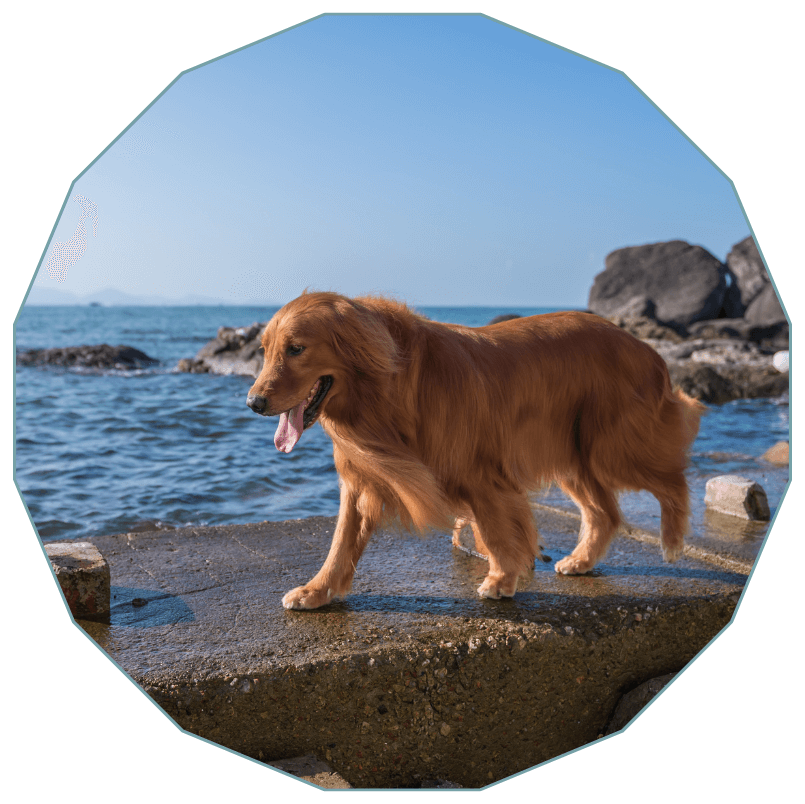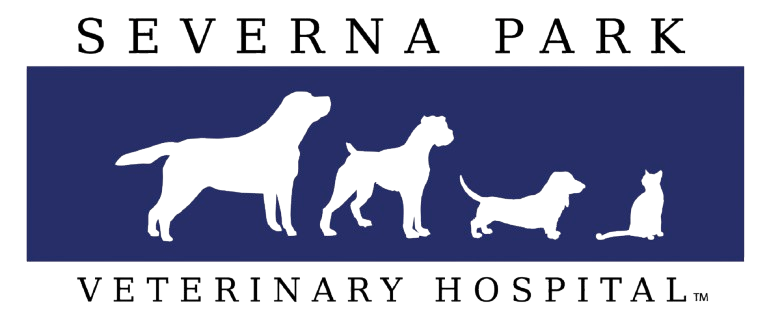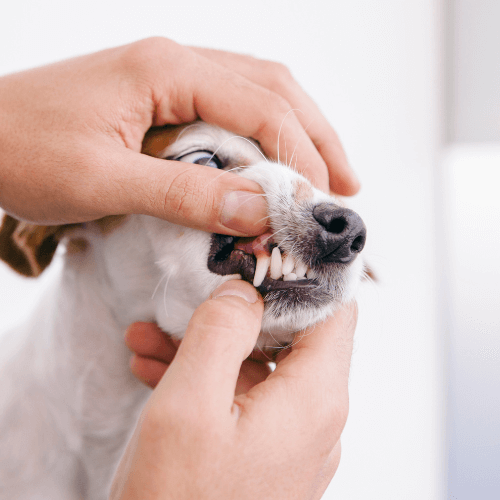Pet Dental X-rays and Surgery
Comprehensive dental care at Severna Park Veterinary Hospital ensures your pet’s oral health, preventing issues and promoting a longer, happier life.

Pet Dental X-rays and Surgery in Severna Park, MD
Did you know that 75-80% of our pets over the age of three have some form of dental disease? Bad breath is often the only sign you, as the pet owner, may notice and is an indication that your pet’s teeth may need attention. If you notice bad breath, please call us to make an appointment to assess your pet’s oral status.
We now know how important treatment of dental disease is in preventing other health issues in dogs. The bacteria that populate in the mouth can lead to disease and/or infection of other places in the body, most commonly the heart, liver, and kidneys. Maintaining a healthy mouth for your pet not only will help with their bad breath, but it also promote a longer, happier life!
Dental Health for Pets: COHAT Procedure and Aftercare
Our dental surgeries include a Comprehensive Oral Health Assessment and Treatment(s) (COHAT). This means that your pet will have a thorough oral examination performed under anesthesia including evaluation of facial bones, the tongue, the cheek folds, and the visible back of the mouth and throat. The teeth will be counted and examined to note any missing teeth, fractures, discoloration, enamel defects, or other abnormalities. A dental probe will be used to evaluate for pockets around the tooth roots beneath the gum line which lead to infection. Dental X-rays taken from inside the mouth evaluate if the teeth and jaw bones appear healthy beneath the surface. Based on the comprehensive oral exam findings, a treatment plan will be determined. Treatment will include ultrasonic scaling and polishing of healthy teeth using the same advanced equipment used by human dentists. Depending on your specific pet’s needs, it may also include surgical extraction of diseased teeth, biopsy of any abnormal lesions, or other more complex treatment recommendations.
After your pet’s dental surgery, one of our highly trained staff members will discuss any pain or other medications as well as written discharges to make sure your pet’s recovery is as smooth and comfortable as possible. We also believe in the importance of discussing at-home dental care once your pet has recovered from surgery (usually 2 weeks post-op), such as daily brushing, prescription dental diets, dental treats, and/or drinking water additives. The Veterinary Oral Health Council (VOHC) maintains a list of research-backed and approved dental products that can aid in maintaining your pet’s dental health at home.

